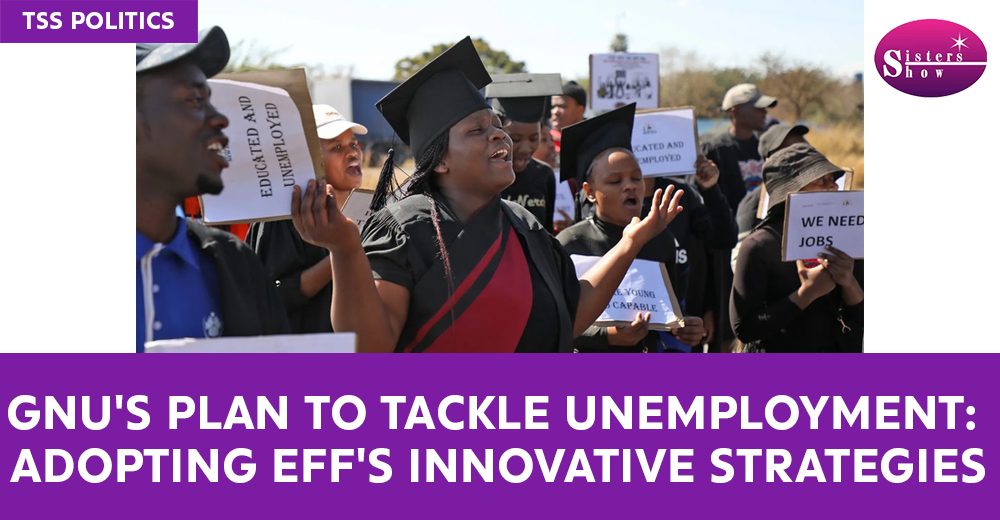
GNU’s Plan to Tackle Unemployment: Adopting EFF’s Innovative Strategies
South Africans are grappling with the self-serving Government of National Unity (GNU), born from the shortsightedness and blatant disregard for the electorate by those who have chosen to partake in it. This marriage of convenience in government raises a critical question: Where does this leave the millions of unemployed people in the country?
The unemployment figures for the first quarter of 2024 are grim, with the rate sitting at a heart-wrenching 32.9%, an increase of 0.9%. These statistics are not just numbers; they represent real people, ordinary citizens shut out of the economy due to the government’s failure to create a conducive environment for business and dignified employment through the restructuring of state-owned entities.
The situation is even bleaker for the youth, with the unemployment rate for those aged 15-24 surpassing 50%. This stark reality underscores the failure of the African National Congress (ANC) government and casts doubt on the current GNU’s ability to remedy the situation without adopting the Economic Freedom Fighters’ (EFF) 2024 election manifesto.
If the GNU is truly serious about transforming the lives of South Africans, it will need to borrow from the detailed and progressive strategies outlined in the EFF’s manifesto. Unlike the current administration, which seems more focused on internal power struggles and public posturing, the EFF emphasizes the professionalization of government. This approach could instantly boost confidence in the state and restore dignity to public servants.
One of the critical areas where the EFF’s strategies could make a significant impact is housing. There is a massive housing backlog that the tender system has failed to address adequately. The EFF proposes the creation of a state-owned housing construction company, which could reduce unemployment across all provinces. Beneficiaries of the Expanded Public Works Programme (EPWP) could find permanent employment, gain access to benefits such as pension funds, and begin contributing to taxes. This shift is crucial for an economy where the number of tax contributors continues to shrink while the number of social grant beneficiaries rises.
Another area of focus is infrastructure. By establishing a state-owned road construction company, the government can address the dilapidating state of South Africa’s roads while creating sustainable jobs. The EFF also advocates for investing in a state-owned cement company, leveraging South Africa’s rich mineral resources to compete globally and supply other African countries.
Furthermore, the establishment of a state-owned mining company could ensure that the country’s mineral wealth benefits the broader population rather than a select few politically connected individuals. This strategy would not only create jobs but also foster a more equitable distribution of resources, contributing to long-term economic stability.
In summary, adopting the EFF’s innovative strategies could be the key to tackling the unemployment crisis in South Africa. The GNU must prioritize the implementation of these progressive methods to create dignified employment, reduce reliance on imports, and ensure that South Africans benefit directly from their country’s resources.




